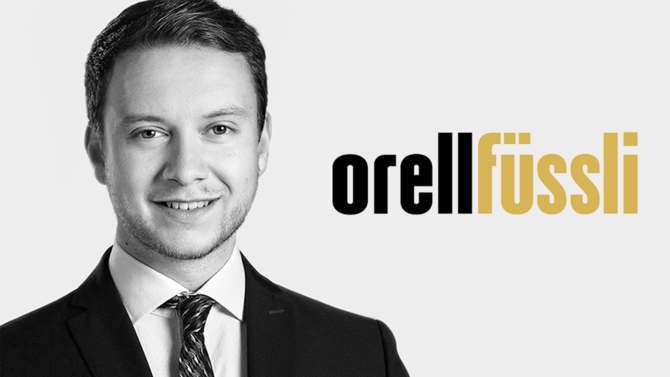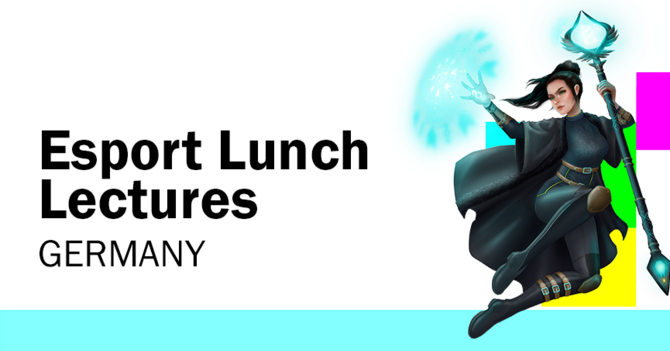Find out today what the legal world will be talking about tomorrow.
Exclusive listening, together with thousands of other fans, to the album of one’s favorite band at a worldwide Virtual Reality Live event even before the release date: the “Gorillaz” made this kind of futuristic idea a reality at their first “Worldwide Listening Party” last year. At this biggest geo-specific event to date, called “Human House Party,” fans were able to listen to the band’s new album via app at 500 designated locations around the world. Sponsor and technology partner Deutsche Telekom refers to the event as a global, shared listening experience – from Tokyo to Santiago (http://www.electronicbeats.net/the-feed/gorillaz-host-worldwide-listening-party-via-new-app/).
But the Gorillaz are by no means the only ones in launching a virtual campaign. Even entire concerts and sporting events are now aired in Virtual reality (VR). VR is the representation and simultaneous perception of reality and its physical properties in a computer-generated, interactive virtual environment. As a result, users are right in the middle of the action. Many artists in the music industry already use this technique to offer their fans a unique experience. This happens during live broadcasts at specified locations or even while lounging on the sofa at home. Even NBA games are broadcasted live as VR experience. California-based NextVR is one of the most highly recognized companies in this VR sector right now (https://www.nextvr.com/nba/). All that is needed for the virtual experience is a pair of VR glasses and Internet access.
VR-Experience – rights for promoters?
While the streaming speed and quality and the price would play the most important role for viewers, the question also arises: What does it mean in legal terms? In addition to artists’ copyrights, data protection law, and music law, the specific event promoters’ right in Section 81 German Copyright Act plays an important role. The latter expressly protects live events.
Events are only subject to the protection of the event promoters’ right if the services of a performing artist are shown. Pure sports events are therefore not covered by this protection in Germany. The event must also be live and public and take place in front of an audience. It is questionable whether the virtual transmission of a live performance has an actual audience. Considering, however, that the new VR technology can simulate an almost perfect feeling of being right in the middle, the performers (also) deliver their show to their VR audience.
The owner of the company organizing the performance of the performing artist enjoys the protection of the event promoters’ right. In the case of virtual transmissions, this will regularly be the company that is responsible for the organization and financial aspects of VR recording and transmission to the end devices.
Association for safeguarding promoters’ rights
Due to the growing relevance of live events, the Association for Safeguarding Promoters’ Rights (Gesellschaft für die Wahrnehmung von Veranstalterrechten, GWVR) was founded in Germany to enable promoters to participate in the proceeds generated by concert recordings. GWVR licensees include, for example, manufacturers of audio and video carriers with recordings of events, radio and television stations that broadcast recordings of events, as well as online providers such as YouTube or Spotify, which make event recordings available on the Internet.
VR seems to be gaining importance in this field as well. One of the recent GWVR press releases states: “The Federal Association of the Event Industry has taken another step towards commercializing promoters’ ancillary copyrights. Concert and tour promoters can now use a simple standard procedure to make live recordings available for download on Apple Music and iTunes so that they can be commercially exploited. In addition, a separate format for audio and video recordings of concerts, festivals, club performances, comedy, circus and shows, theater and musical performances – in other words, all live content – is planned.” (http://gwvr.de/188-2/)
Is VR the end of Live?
In the future, the VR sector will develop and progress massively, while a declining trend can also be observed in some cases. For example, in 2016, NextVR broadcasted various NBA games in 180 degrees instead of 360 degrees. Danny Keens, who is responsible for NextVR’s content, explains that the added value of watching the popcorn-chewing fan behind viewers is rather limited. Moreover, the question of viewers’ personal rights does not have to be considered.
However, the price of VR glasses still seems to keep many viewers from enjoying the VR Experience. Viewers also complained about being shielded from the outside world when wearing VR glasses. Efforts are already underway on social applications that could alleviate this deficiency in the future. We are also excited to observe Apple’s patent research and development in relation to virtual reality. Latest designs point to optimized, light headsets with lens technology (https://www.techradar.com/news/a-new-patent-appears-showing-apples-smart-arvr-glasses). VR becoming mainstream is just a matter of time.
VR ultimately would not replace the live experience itself. Nevertheless, artists, promoters, and marketers should be aware of the possibilities of VR and consider the “Gorillaz” as role model. Even some of their concerts were broadcasted online with 360-degree live streams in cooperation with Telekom Electronic Beats worldwide (http://musikmussmit.de/electronic-beats-gorillaz/). The protection of VR Experiences that is considered possible by German copyright law opens up new possibilities for artists and Promoters.
VR-Experience – rights for promoters?
While the streaming speed and quality and the price would play the most important role for viewers, the question also arises: What does it mean in legal terms? In addition to artists’ copyrights, data protection law, and music law, the specific event promoters’ right in Section 81 German Copyright Act plays an important role. The latter expressly protects live events.
Events are only subject to the protection of the event promoters’ right if the services of a performing artist are shown. Pure sports events are therefore not covered by this protection in Germany. The event must also be live and public and take place in front of an audience. It is questionable whether the virtual transmission of a live performance has an actual audience. Considering, however, that the new VR technology can simulate an almost perfect feeling of being right in the middle, the performers (also) deliver their show to their VR audience.
The owner of the company organizing the performance of the performing artist enjoys the protection of the event promoters’ right. In the case of virtual transmissions, this will regularly be the company that is responsible for the organization and financial aspects of VR recording and transmission to the end devices.
Association for safeguarding promoters’ rights
Due to the growing relevance of live events, the Association for Safeguarding Promoters’ Rights (Gesellschaft für die Wahrnehmung von Veranstalterrechten, GWVR) was founded in Germany to enable promoters to participate in the proceeds generated by concert recordings. GWVR licensees include, for example, manufacturers of audio and video carriers with recordings of events, radio and television stations that broadcast recordings of events, as well as online providers such as YouTube or Spotify, which make event recordings available on the Internet.
VR seems to be gaining importance in this field as well. One of the recent GWVR press releases states: “The Federal Association of the Event Industry has taken another step towards commercializing promoters’ ancillary copyrights. Concert and tour promoters can now use a simple standard procedure to make live recordings available for download on Apple Music and iTunes so that they can be commercially exploited. In addition, a separate format for audio and video recordings of concerts, festivals, club performances, comedy, circus and shows, theater and musical performances – in other words, all live content – is planned.” (http://gwvr.de/188-2/)
Is VR the end of Live?
In the future, the VR sector will develop and progress massively, while a declining trend can also be observed in some cases. For example, in 2016, NextVR broadcasted various NBA games in 180 degrees instead of 360 degrees. Danny Keens, who is responsible for NextVR’s content, explains that the added value of watching the popcorn-chewing fan behind viewers is rather limited. Moreover, the question of viewers’ personal rights does not have to be considered.
However, the price of VR glasses still seems to keep many viewers from enjoying the VR Experience. Viewers also complained about being shielded from the outside world when wearing VR glasses. Efforts are already underway on social applications that could alleviate this deficiency in the future. We are also excited to observe Apple’s patent research and development in relation to virtual reality. Latest designs point to optimized, light headsets with lens technology (https://www.techradar.com/news/a-new-patent-appears-showing-apples-smart-arvr-glasses). VR becoming mainstream is just a matter of time.
VR ultimately would not replace the live experience itself. Nevertheless, artists, promoters, and marketers should be aware of the possibilities of VR and consider the “Gorillaz” as role model. Even some of their concerts were broadcasted online with 360-degree live streams in cooperation with Telekom Electronic Beats worldwide (http://musikmussmit.de/electronic-beats-gorillaz/). The protection of VR Experiences that is considered possible by German copyright law opens up new possibilities for artists and Promoters.


